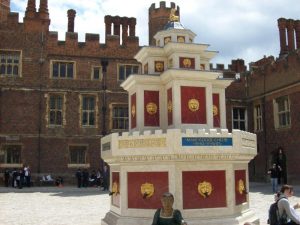 On this day in history, Wednesday 10th May 1536, the foreman of the Grand Jury of Middlesex, Giles Heron, son-in-law of the late Sir Thomas More, announced that the jury had decided that there was sufficient evidence to suggest that Queen Anne Boleyn and five men of the men imprisoned in the Tower of London – Sir Henry Norris, William Brereton, Mark Smeaton, Sir Francis Weston and George Boleyn, Lord Rochford – were guilty of the alleged crimes carried out in the county of Middlesex, specifically at Hampton Court Palace and Whitehall. The decision was made to indict them and to send them to trial.
On this day in history, Wednesday 10th May 1536, the foreman of the Grand Jury of Middlesex, Giles Heron, son-in-law of the late Sir Thomas More, announced that the jury had decided that there was sufficient evidence to suggest that Queen Anne Boleyn and five men of the men imprisoned in the Tower of London – Sir Henry Norris, William Brereton, Mark Smeaton, Sir Francis Weston and George Boleyn, Lord Rochford – were guilty of the alleged crimes carried out in the county of Middlesex, specifically at Hampton Court Palace and Whitehall. The decision was made to indict them and to send them to trial.
No mention was made of Sir Richard Page, a Gentleman of the Privy Chamber and a former favourite of Thomas Cromwell, and Sir Thomas Wyatt the Elder, poet and courtier, who had also recently been imprisoned in the Tower of London.
Click here to read the Middlesex indictment listing the charges against Queen Anne and these men.
Three years earlier, on 10th May 1533, Archbishop Thomas Cranmer opened a special court at Dunstable to rule on the validity of the marriage of Henry VIII and Catherine of Aragon. Click here to read more about that.
Picture: Hampton Court Palace, photo copyright Tim Ridgway.